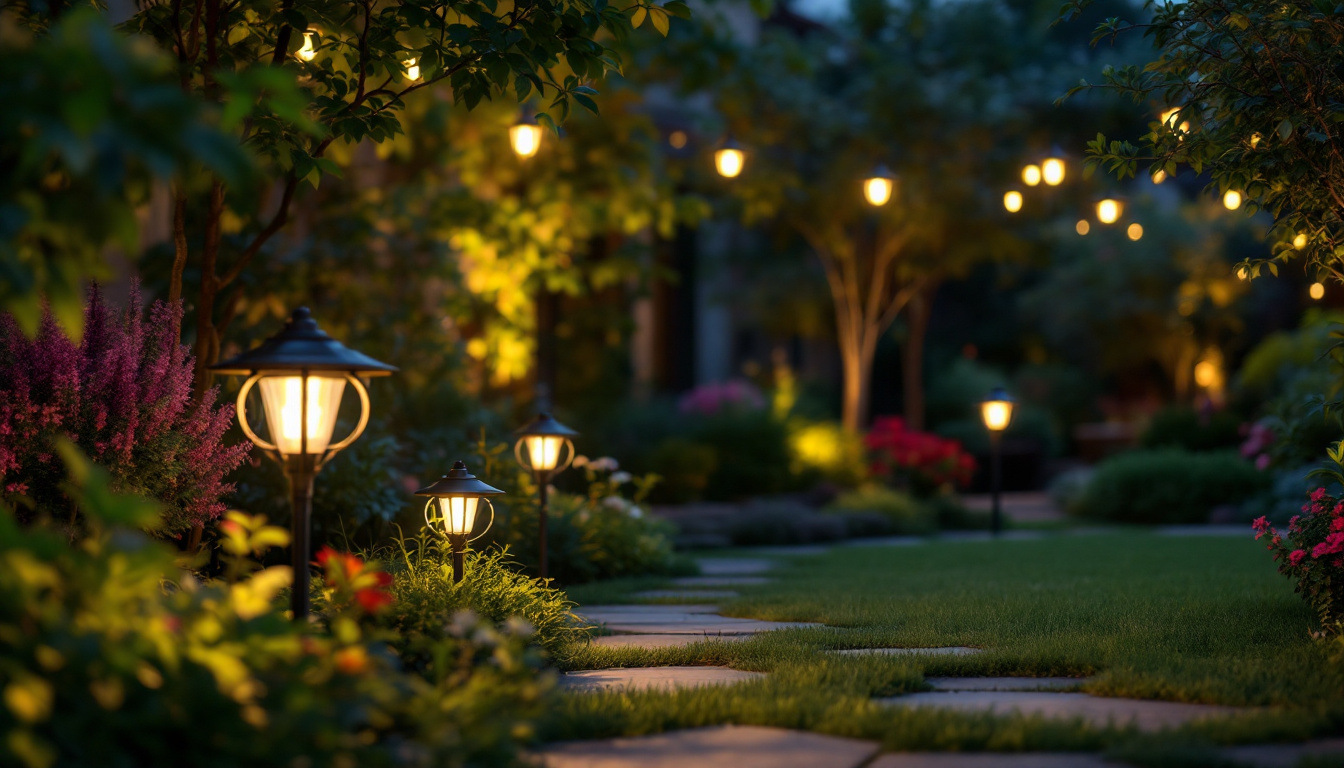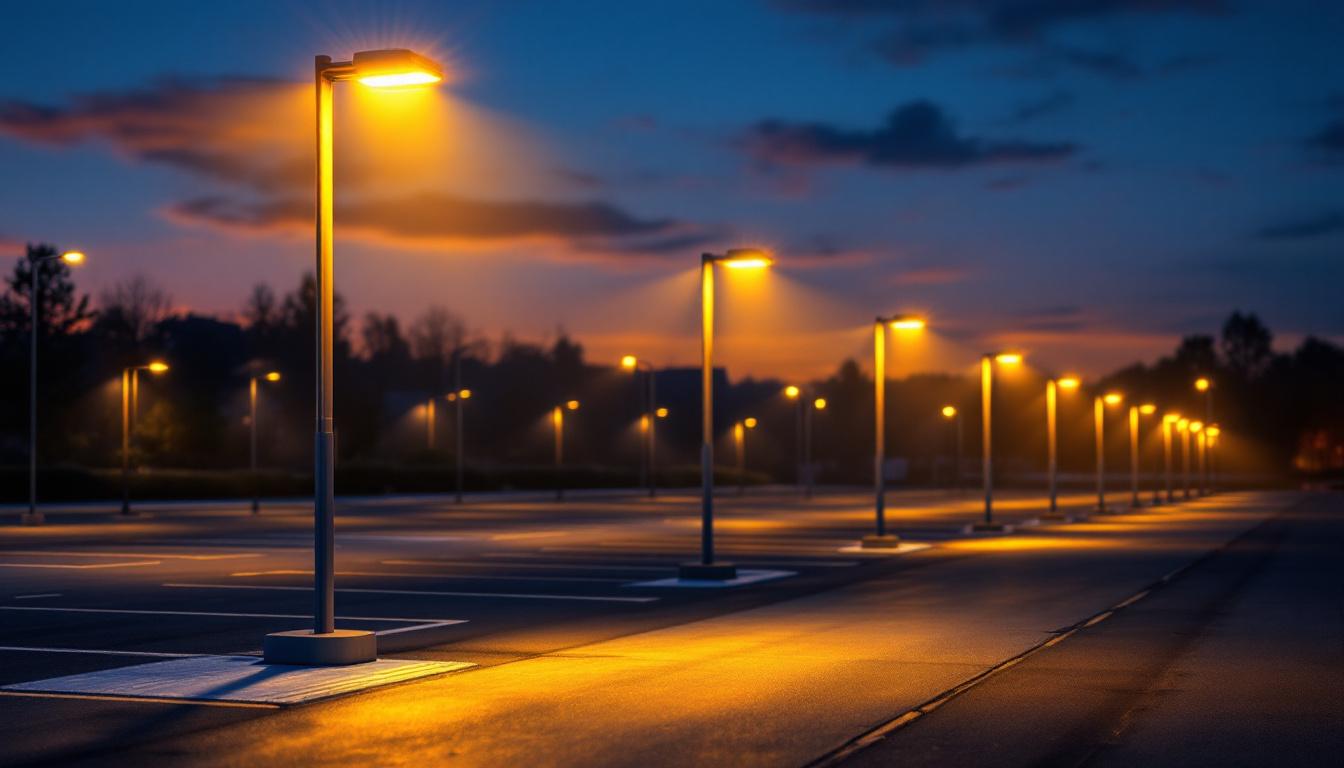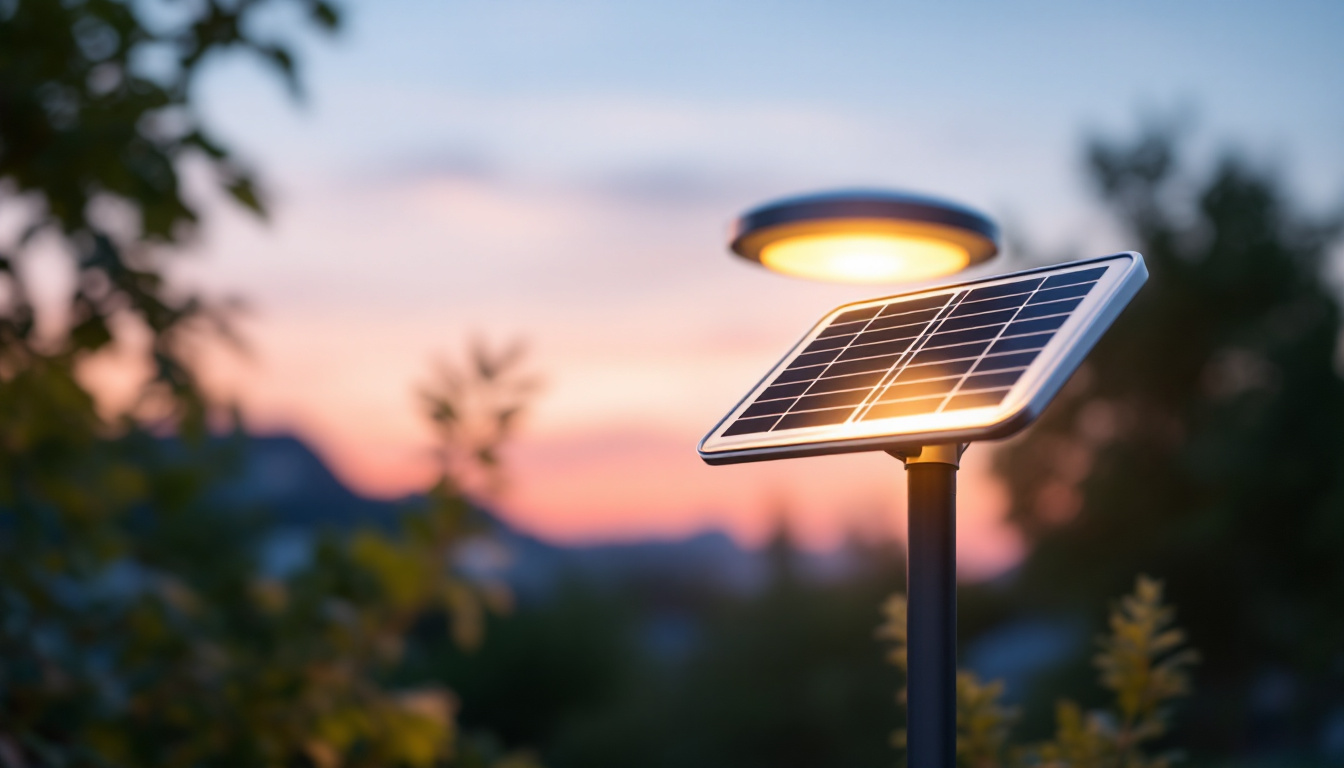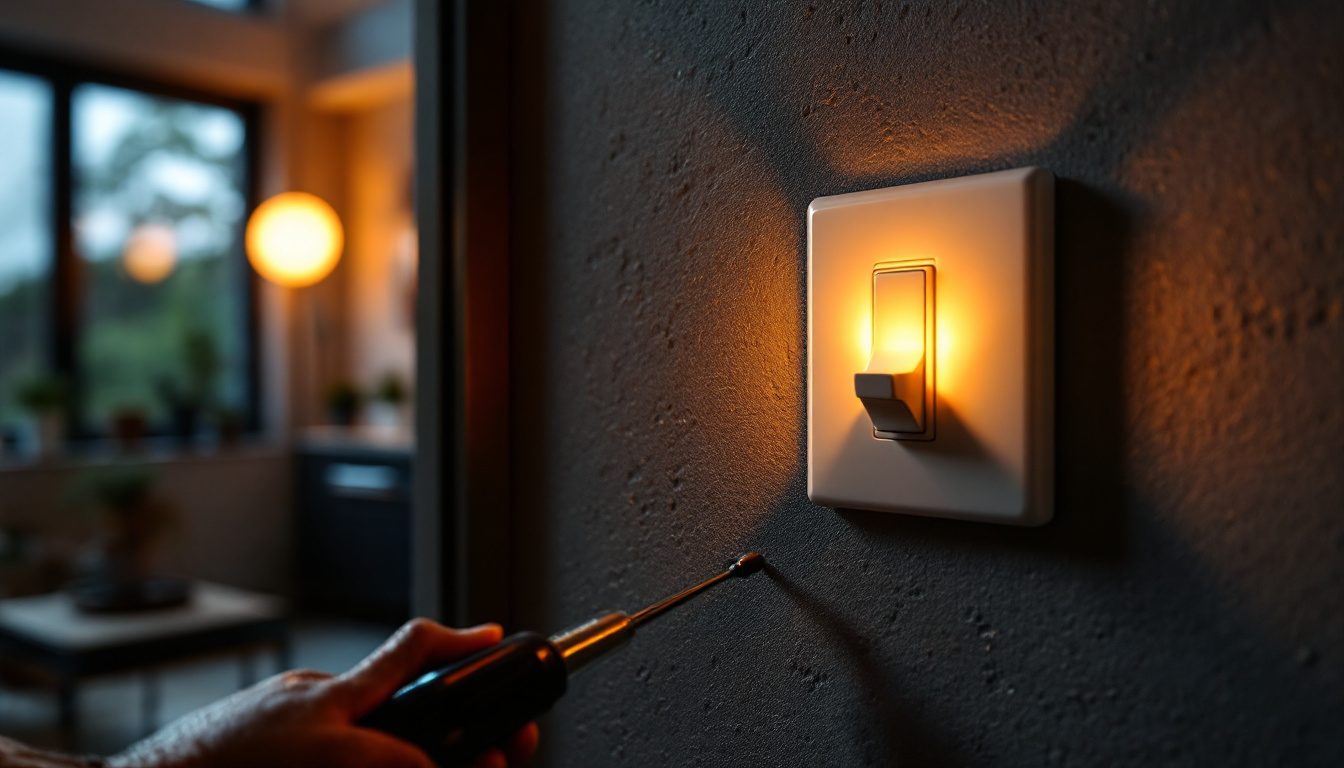
As the demand for sustainable and energy-efficient lighting solutions continues to rise, solar outdoor garden lights have become a popular choice for homeowners and businesses alike. For lighting contractors, understanding the nuances of solar lighting installations is crucial. This article delves into best practices that can enhance the effectiveness and longevity of solar outdoor garden lights.
Before diving into installation techniques, it is essential for lighting contractors to have a solid grasp of how solar technology works. solar lights harness energy from the sun using photovoltaic cells, which convert sunlight into electricity. This electricity is stored in batteries, allowing the lights to operate during the night. The efficiency of this process can vary based on several factors, including the angle of the solar panel, the amount of sunlight received, and the quality of the components used. By understanding these variables, contractors can optimize the performance of solar lighting systems to ensure they meet the needs of their clients.
Familiarity with the components of solar lights—such as solar panels, batteries, LED bulbs, and sensors—enables contractors to make informed decisions about which products to recommend or install. Understanding the efficiency and limitations of these components can significantly impact the performance of the lighting system. For instance, knowing how temperature fluctuations can affect battery performance allows contractors to choose batteries that are better suited for specific climates, ensuring longevity and reliability in various environmental conditions.
There are various types of solar outdoor garden lights available on the market, each designed for specific applications. Pathway lights, spotlights, and decorative string lights are just a few examples. Contractors should assess the needs of the client and the intended use of the lights to determine the best type. Moreover, some solar lights come equipped with smart technology, allowing them to adjust brightness based on ambient light levels, which can enhance energy efficiency and prolong battery life.
Pathway lights are ideal for illuminating walkways and garden paths, enhancing safety while adding aesthetic appeal. Spotlights can highlight specific features, such as trees or sculptures, while decorative string lights create a festive atmosphere for outdoor gatherings. Understanding these distinctions allows contractors to tailor their recommendations to meet client expectations. Additionally, some solar lights are designed with motion sensors, which can provide added security by illuminating areas only when movement is detected, thus conserving energy and extending the lifespan of the lights.
When selecting solar lights, contractors should consider several key features, including brightness (measured in lumens), battery capacity, and the type of solar panel used. A higher lumen count generally indicates a brighter light, which is essential for areas requiring more illumination. Furthermore, the color temperature of the LED bulbs can also impact the ambiance of the space; warmer tones may create a cozy atmosphere, while cooler tones can provide a more modern and vibrant feel.
Battery capacity is another critical factor, as it determines how long the lights will operate after sunset. Additionally, the type of solar panel can affect charging efficiency. Monocrystalline panels, for example, tend to be more efficient than polycrystalline panels, making them a better choice for areas with limited sunlight. Contractors should also be aware of the weather resistance ratings of the lights, as this can influence their durability and performance in varying climates. By considering all these features, contractors can ensure that they select the most suitable solar lighting solutions for their clients, enhancing both functionality and aesthetics in outdoor spaces.
A thorough site assessment is a vital step in the installation process. Lighting contractors should evaluate the location where the solar lights will be installed, considering factors such as sunlight exposure, landscape features, and existing electrical infrastructure.
During the assessment, it is crucial to identify areas that receive adequate sunlight throughout the day. Shaded locations may hinder the performance of solar lights, leading to inadequate charging and reduced operational time. By mapping out the site and noting potential obstacles, contractors can create a strategic plan for light placement.
Contractors should conduct a sunlight exposure analysis to determine the best spots for solar lights. This involves observing the site at different times of the day to identify areas that receive direct sunlight. Ideally, solar panels should be positioned to maximize exposure, avoiding obstructions such as trees, buildings, or fences.
Utilizing tools such as sunlight calculators or apps can assist contractors in assessing sunlight availability. This data-driven approach ensures that the chosen locations will provide sufficient energy for optimal performance.
Designing an effective lighting layout requires a balance between functionality and aesthetics. Contractors should consider the overall theme of the garden or outdoor space when planning the arrangement of solar lights. For instance, a modern garden may benefit from sleek, minimalist fixtures, while a rustic garden could incorporate lantern-style lights.
Moreover, the spacing between lights is essential for achieving uniform illumination. A general rule of thumb is to place lights approximately 6 to 8 feet apart, although this may vary based on the brightness of the fixtures and the desired effect. Contractors should also consider the height of the lights, as taller fixtures can cast light over a larger area.
Proper installation is critical to the longevity and effectiveness of solar outdoor garden lights. Following best practices can help ensure that the lights operate optimally and provide the desired aesthetic appeal.
Contractors should begin by carefully reading the manufacturer’s instructions for each solar light model. This will provide insights into specific installation requirements and recommendations. Additionally, using the right tools and techniques during installation can prevent damage to the fixtures and ensure a secure fit.
Before installing solar lights, contractors should prepare the ground to ensure stability and proper drainage. This may involve clearing debris, leveling the soil, and creating holes for the fixtures if necessary. Proper ground preparation helps prevent issues such as leaning lights or water pooling around the base.
In areas with particularly loose or sandy soil, it may be beneficial to use stakes or anchors to secure the lights. This added stability can prevent the fixtures from being easily dislodged by wind or other environmental factors.
When positioning solar lights, contractors should ensure that the solar panels are oriented towards the sun for maximum exposure. This may require adjusting the angle of the lights or selecting specific locations that provide unobstructed sunlight.
Alignment is also crucial for aesthetic purposes. Lights should be positioned evenly and in a way that complements the landscape design. Using a measuring tape or string can help maintain consistent spacing and alignment during installation.
Regular maintenance is essential for the optimal performance of solar outdoor garden lights. Contractors should educate clients on how to care for their solar lights, ensuring they last for many seasons.
Maintenance tasks may include cleaning the solar panels to remove dirt and debris, checking the battery condition, and replacing bulbs as needed. By performing these tasks, clients can maximize the efficiency and lifespan of their solar lighting systems.
Solar panels can accumulate dirt, dust, and grime over time, which can impede their ability to absorb sunlight. Contractors should recommend that clients clean the panels at least once a season, especially in areas with high pollen counts or dust levels.
Cleaning can be done with a soft cloth and mild soap, ensuring that the panels are gently wiped without scratching the surface. This simple maintenance task can significantly improve the performance of solar lights.
Even with proper installation and maintenance, issues may arise with solar outdoor garden lights. Common problems include dim lighting, lights not turning on, or inconsistent performance. Contractors should be prepared to troubleshoot these issues effectively.
For dim lighting, checking the battery condition and ensuring that the solar panels are clean and unobstructed is a good starting point. If lights are not turning on at all, it may be necessary to replace the batteries or inspect the wiring for any damage. By being proactive in addressing these issues, contractors can help clients maintain their solar lighting systems effectively.
Educating clients about solar outdoor garden lights is a crucial aspect of the contractor’s role. Clear communication can help manage expectations and ensure that clients understand the benefits and limitations of solar technology.
Contractors should explain how solar lights work, including the importance of sunlight exposure and battery capacity. Additionally, discussing the potential for variations in performance based on weather conditions can help clients appreciate the nuances of solar lighting.
It is essential for contractors to set realistic expectations regarding the performance of solar lights. Clients should understand that while solar lights can provide significant energy savings and environmental benefits, they may not always match the brightness of traditional electric lights.
By communicating these points clearly, contractors can foster a positive relationship with clients and minimize potential dissatisfaction. Clients who have a realistic understanding of their solar lighting systems are more likely to appreciate their benefits.
Offering ongoing support and follow-up services can enhance client satisfaction and build long-term relationships. Contractors should encourage clients to reach out with any questions or concerns regarding their solar lights.
Additionally, providing maintenance reminders or tips can help clients keep their solar lighting systems in optimal condition. This proactive approach not only benefits the client but also reinforces the contractor’s reputation as a knowledgeable and reliable professional.
Solar outdoor garden lights present an excellent opportunity for lighting contractors to offer sustainable and appealing solutions to clients. By understanding solar technology, conducting thorough site assessments, adhering to best installation practices, and providing ongoing education, contractors can ensure successful solar lighting projects.
As the landscape of outdoor lighting continues to evolve, staying informed about advancements in solar technology and installation techniques will be essential for contractors aiming to provide the best service possible. Embracing these best practices will not only enhance project outcomes but also contribute to a more sustainable future.
Ready to elevate your lighting projects with sustainable solutions that don’t compromise on quality or cost? Look no further than LumenWholesale. Our extensive selection of spec-grade solar outdoor garden lights is designed to meet the highest industry standards, ensuring you deliver reliable and high-performance lighting to your clients. With unbeatable wholesale prices and the convenience of free shipping on bulk orders, LumenWholesale is your go-to source for premium lighting at the best value. Explore our collection now and experience the perfect blend of quality, affordability, and convenience.

Discover essential insights into parking lights with our comprehensive guide tailored for lighting contractors.

Discover effective strategies to train your team in managing halogen bulb heat, ensuring safety and efficiency in lighting projects.

Discover how integrating solar panels into lamp installations can boost profitability while promoting sustainability.

Discover how single pole switches can streamline your lighting installation projects.